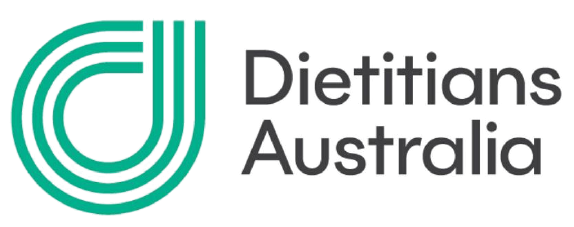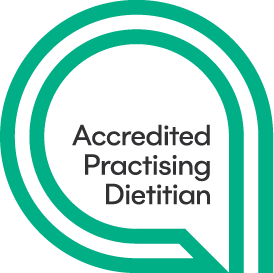Do you need a few reasons to stop eating animal products? This is a good place to start. Here is a quick run down on TMAO and Dairy products. Maybe you have no idea what TMAO is. Read on to find out more.
The dangerous TMAO link
TMAO (Trimethylamine N-oxide) is a compound produced by the gut bacteria. Nutrients such as lecithin, choline and L-carnitine are abundant in animal products such as red meat, egg yolk and full fat dairy products. Choline is found in eggs and L-carnitine is found in red meat and dairy products. When these foods are ingested, the gut bacteria processes these nutrients and in turn produces TMA (Trimethylamine) in the blood. TMA is then transported to the liver where it is converted to TMAO which has been shown to be involved in the development of atherosclerosis (plaque in the arteries). As mentioned, red meat, eggs, and dairy products are TMAO precursors, other sources include processed meats, fish, cheese, butter, energy drinks and some dietary supplements.
Clinical studies show a positive correlation between increased levels of TMAO and increased risk of cardiovascular issues like myocardial infarction, stroke or death. Those with Diabetes have been found to have higher plasma TMAO than non-diabetics. Another study on men who had previously been treated for heart failure found that of the 720 patients, those with the highest levels of TMAO in the blood had a 3.4-fold increased risk of dying compared to those with the lowest levels. High TMAO levels have also been positively associated with colorectal cancer as high intakes of red meat are associated with increased risk for this type of cancer.
TMAO may also worsen impaired glucose tolerance, promote adipose tissue inflammation and affect liver signaling (for insulin). Vegans have a markedly reduced capacity to make TMA and TMAO from dietary carnitine in studies and have lower TMAO levels than omnivores. The good news is that changing the foods we eat can quickly change our microbiota within as little as one or two days! Removing animal products, animal flesh and any animal by products will quickly change the amount of TMAO our body produces. Some individuals will completely stop producing any TMAO if they go plant based.
Dairy
Dairy comes from the breast of another animal- a cow. These bovine secretions (cow’s milk) are created to turn a newborn calf into a 600lb cow over a short period of time. The cow’s milk contains IGF-1 which helps the calf grow at this fast rate. IGF-1 (insulin like growth factor -1) is important for humans during childhood and puberty too but in adulthood it can promote abnormal growth and metastasis-cancer cell growth (such as tumors) & acne. The more IGF-1 in the body, the higher the risk of prostate and breast cancer as the body is constantly being told to make more cells and to multiply and grow. IGF-1 helps build a blood supply to new tumors (known as angiogenesis) and therefore can contribute to metastasis or the spread of cancer.
Humans are not supposed to drink milk after weaning, especially from another animal! A large portion of the population are in fact lactose intolerant (believed to be over 65% have reduced ability to digest lactose after weaning) because most of us finish producing the enzyme lactase after we wean!
How Plant-Based Diets Can Lower IGF-1
Studies show only a few days of eating plant based the IGF-1 levels drop! From a study comparing meat eaters, vegetarians and vegans they discovered it was only the vegans had significantly lower levels and were able to bind up excess IGF-1 in their bloodstream in both males and females. Being vegetarian was not enough as it did not lower IGF-1 as much as vegan diets & low IGF-1 levels can halt cancer cell growth. IGF-1 is not found in plant foods.
Other Nasties in Dairy
It’s not just IGF-1 you need to be worried about. Cow’s milk contains lots of other nasties such as estrogens similar to that of women. These estrogens come from the cow as most have been pregnant or have just given birth while they are milked. Estrogen metabolites from cows’ milk are considered risk factors for cancers of the reproductive system including cancer of the breast, ovaries and prostate. Consumption of milk and dairy products contributes to the majority of estrogen in the human diet (approximately 60-70%). Women who already suffer with Endometriosis should avoid dairy as they are already estrogen dominant. Then there are dioxins- these are undesirable contaminants in the food supply. It is estimated by the US Environmental Protection agency that up to 90% of human exposure to dioxins is from animal sources. Health effects to these dioxins include neurodevelopmental and neurobehavioral impacts on developing fetuses and infants. It is also considered a likely carcinogen (cancer causing compound) though more studies are needed in this area. Pregnant women and breastfeeding mothers can pass these dioxins to their fetus or infant if they are consuming these high dioxin foods (fish, red meat, chicken, dairy, eggs) so a plant-based diet is beneficial for this reason as it greatly reduces your exposure.
Benefits of going Vegan to the Environment & the Animals
- Researchers at the University of Oxford found that cutting meat and dairy products from your diet could reduce an individual’s carbon footprint from food by up to 73%!
- If everyone stopped eating animal foods, global farmland could be reduced by 75% (an area the size of the US, China, Australia and EU combined!)
- This would reduce greenhouse gas emissions greatly and free up wild land lost to agriculture (one of the primary causes of wildlife extinction.)
- A recent 2018 study analyzed the detrimental effects farming can have on the environment and included data on 40,000 farms and 119 countries. Their findings indicated that meat and dairy production is responsible for 60% of agriculture’s greenhouse gas emissions.
- Each day you do not consume animal products you are saving 1100 gallons of water, 40 pounds (or 18kg) of grain, 30 square foot of forest, 20 pounds (or 9 kg) of Co2 and 1 animal.
- Each year you are vegan you save 1,519,823 liters of water, 6,607 kg of grain, 1,022 square meters of forest, 3,322 kg of Co2, and 365 animals.
- Humanity has wiped out 60% of mammals, birds’ fish and reptiles since 1970. To put this into perspective, if 60% of humans were wiped off the earth, it would be equivalent to emptying all of America, Africa, Europe, China and Oceania. Humankind is believed to be responsible for destroying 83% of all mammals and half of plants since the dawn of civilization. It’s believed that it would take 5-7 million years for the world to recover, even if the destruction stopped now. A major report involving 59 scientists from across the world found that the growing consumption of food and resources is destroying other species which were billions of years in the making, which humans depends on for clean air and The primary cause of wildlife losses is the destruction of natural habitats to create farmland. Killing for food is the second biggest cause- 300 mammal species are being eaten into extinction.
- We are facing the sad reality of fishless oceans by 2048 if we continue to fish the oceans as we are and have been. Humans need change their eating habits, taste preferences and cultural beliefs surrounding animals. They must become more educated on our food choices and how its impacting the earth, our health and other species and we can make the world a much better place.
References:
Lea, E. J., Crawford, D., & Worsley, A. (2006). Public views of the benefits and barriers to the consumption of a plant-based diet. European Journal of Clinical Nutrition, 60(7), 828-37. doi:http://dx.doi.org/10.1038/sj.ejcn.1602387
Turner-mcgrievy, G., & Harris, M. (2014). Key elements of plant-based diets associated with reduced risk of metabolic syndrome. Current Diabetes Reports, 14(9), 1-9. doi:http://dx.doi.org/10.1007/s11892-014-0524-y
Ufnal, M., Zadlo, A., & Ostaszewski, R. (2015). TMAO: A small molecule of great expectations. Nutrition, 31(11-12), 1317-1323. doi:http://dx.doi.org/10.1016/j.nut.2015.05.006
Koeth RA et al. Intestinal microbiota metabolism of L-carnitine, a nutrient in red meat, promotes atherosclerosis. Nat Med. 2013; 19: 576-585.
Wang Z et al. Non-lethal Inhibition of Gut Microbial Trimethylamine Production for the Treatment of Atherosclerosis. Cell. 2015; 163: 1585-1595.
Bäckhed F et al. Defining a healthy human gut microbiome: current concepts, future directions, and clinical applications. Cell host & microbe 2012; 5: 611-622.
Norat T, et al. Diet, serum insulin-like growth factor-I and IGF-binding protein-3 in European women. Eur J Clin Nutr. 2007;61(1):91-98.
van der Pols JC, et al, Childhood dairy intake and adult cancer risk: 65-y follow-up of the Boyd Orr cohort. Am J Clin Nutr. 2007; 86(6):1722-1729.
Chan JM, et al, Dairy products, calcium, and prostate cancer risk in the Physicians’ Health Study. Am J Clin Nutr. 2001;74:549-554.
Larsson SC, Orsini N, & Wolk A. Milk, milk products and lactose intake and ovarian cancer risk: a meta-analysis of epidemiological studies. Int J Cancer. 2006;118(2):431-441.
Hjartaker A, Laake P, & Lund E. Childhood and adult milk consumption and risk of premenopausal breast cancer in a cohort of 48,844 women – the Norwegian women and cancer study. Int J Cancer. 2001;93(6):888-893.
Lally P, Cornelia HM, Potts HW, Wardle J. How habits are formed: Modelling habit formation in the real world. Eur J Soc Psychol; 2010;40 998-1009.
Yaktine, A. L., Harrison, G. G., & Lawrence, R. S. (2006). Reducing exposure to dioxins and related compounds through foods in the next generation. Nutrition Reviews, 64(9), 403-9. Retrieved from https://search.proquest.com/docview/212338717?accountid=34512
Poore, J., Nemecek, T. (2018) Reducing foods environmental impacts through producers and consumers.Science, 360 (6392), 987-992.
World Health Organisation (2015) Q&Q on the carcinogenicity of the consumption of red meat and processed meat. Obtained from http://www.who.int/features/qa/cancer-red-meat/en/
Koeth, R. A., et al (2013). Intestinal microbiota metabolism of L-carnitine, a nutrient in red meat, promotes atherosclerosis. Nature medicine, 19(5), 576-85.
Richman, E.L. Intakes of meat, fish, poultry, and eggs and risk of prostate cancer progression. The American Journal of Clinical Nutrition, 2010 Mar;91(3):712-21; at https://www.ncbi.nlm.nih.gov/pubmed/20042525






